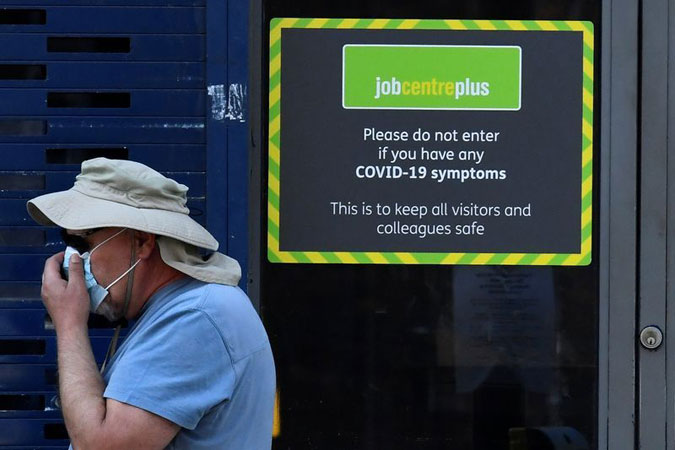 Britain’s unemployment rate rose by more than expected in the three months to August, before the end of the government’s broad coronavirus job-protection plan and the imposition of new restrictions to slow the pandemic.
Britain’s unemployment rate rose by more than expected in the three months to August, before the end of the government’s broad coronavirus job-protection plan and the imposition of new restrictions to slow the pandemic.
The jobless rate hit 4.5%, its highest in more than three years and above the forecast of 4.3% in a Reuters poll of economists.
The number of people counted as unemployed rose by the most since 2009, during the global financial crisis, and the Office for National Statistics revised up its estimate of job losses earlier this year, raising its estimate of unemployment in the three months to July to 4.3%.
“Since the start of the pandemic there has been a sharp increase in those out of work and job hunting but more people telling us they are not actively looking for work,” Jonathan Athow, the ONS’s deputy national statistician, said.
“There has also been a stark rise in the number of people who have recently been made redundant.”
The ONS data showed redundancies jumped by a record 114,000 on the quarter to 227,000, their highest level since 2009.
The number of people in employment fell by 153,000, much higher than a median forecast for a fall of 30,000 in the Reuters poll.
Finance minister Rishi Sunak reiterated on Tuesday that his priority remained to slow the rising job losses. However, he is replacing a 50 billion-pound wage-subsidy scheme, which expires at the end of this month, with a less generous programme.
“I’ve been honest with people from the start that we would unfortunately not be able to save every job,” he said.
Prime Minister Boris Johnson introduced a new system of restrictions for England on Monday that will hit the hospitality industry, and a minister said the government may have to go further.
“With economic support falling just as lockdown restrictions increase across the country, we should prepare for a major increase in unemployment over the coming months,” said Nye Cominetti, an economist at the Resolution Foundation think tank.
The Confederation of British Industry said ramping up testing was key to securing an economic recovery.
There were some positive signs in Tuesday’s data.
Tax office figures showed the number of staff on company payrolls rose by a monthly 20,000 in September, slightly reducing the total number of job losses by that measure since March to 673,000.
The number of job vacancies rose by the most on record in the three months to September, although the total remained down 40% compared with a year earlier.
The Bank of England has forecast that the unemployment rate will hit 7.5% by the end of the year. But BoE Governor Andrew Bailey on Monday repeated his warning that the recovery could prove weaker than the central bank’s forecasts.
Britain’s economy grew in August at its slowest pace since May as its recovery from the lockdown slowed.
Scores of companies have announced plans to cut jobs since the pandemic struck. Last week the owner of clothing retailers Edinburgh Woollen Mills, Peacock’s and Jaeger put 24,000 jobs at risk by saying it was set for administration.